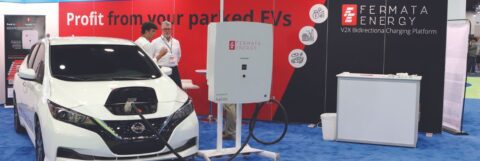Does Michigan stand a chance of competing in the global auto industry’s transition to electric vehicles? You bet it does. But it won’t be easy. And we’ll really have to be on our toes.
Everyone knows that battery electric vehicles (BEVs) need many fewer parts and people to make them compared to internal combustion engine (ICE) vehicles. But Michigan can capture an outsized number of EV battery and component plants to offset many of those losses. We have the resources, the talent, and the know-how to do it.
The single biggest challenge facing companies that want to build battery plants in the United States is finding the people to do it. They’re all struggling with it. And what they’re finding is that it’s not just a matter of finding the people, it’s also a matter of finding people with the right skills, and a matter of finding people who are willing to work in factories. That’s not easy to do, especially when you have to hire thousands of people all at once.
I know of one Japanese battery company that visited over 40 sites all over the country before it finally found one where it could hire enough people. And as other battery companies flock to the United States to take advantage of the subsidies provided by the Inflation Reduction Act, they’re going to struggle even more to find a location with the employment base they need.
Meanwhile, Michigan has what they need– a deep manufacturing culture with a working population that’s not afraid of factory work.
But it goes beyond factory jobs. The transition to BEVs is going to require an army of engineers who know how to design software-defined vehicles that can be digitally connected and are cyber hardened. That requires software skills that are not the traditional strengths of Michigan’s mechanical engineers. Yet we already have a lot of software development going on in the state, and by building on that we can get even more.
I think the key will be to rekindle the startup culture that was so prevalent in Michigan over a century ago, when inventors like Ransom E. Olds, Henry Ford and Walter P. Chrysler enthralled investors with their vision of the future and went on to build powerful industrial machines. That spirit still lurks in places like Detroit, Grand Rapids and Traverse City, to name a few. It just has to be nurtured, encouraged, and supported to burn brightly again.





